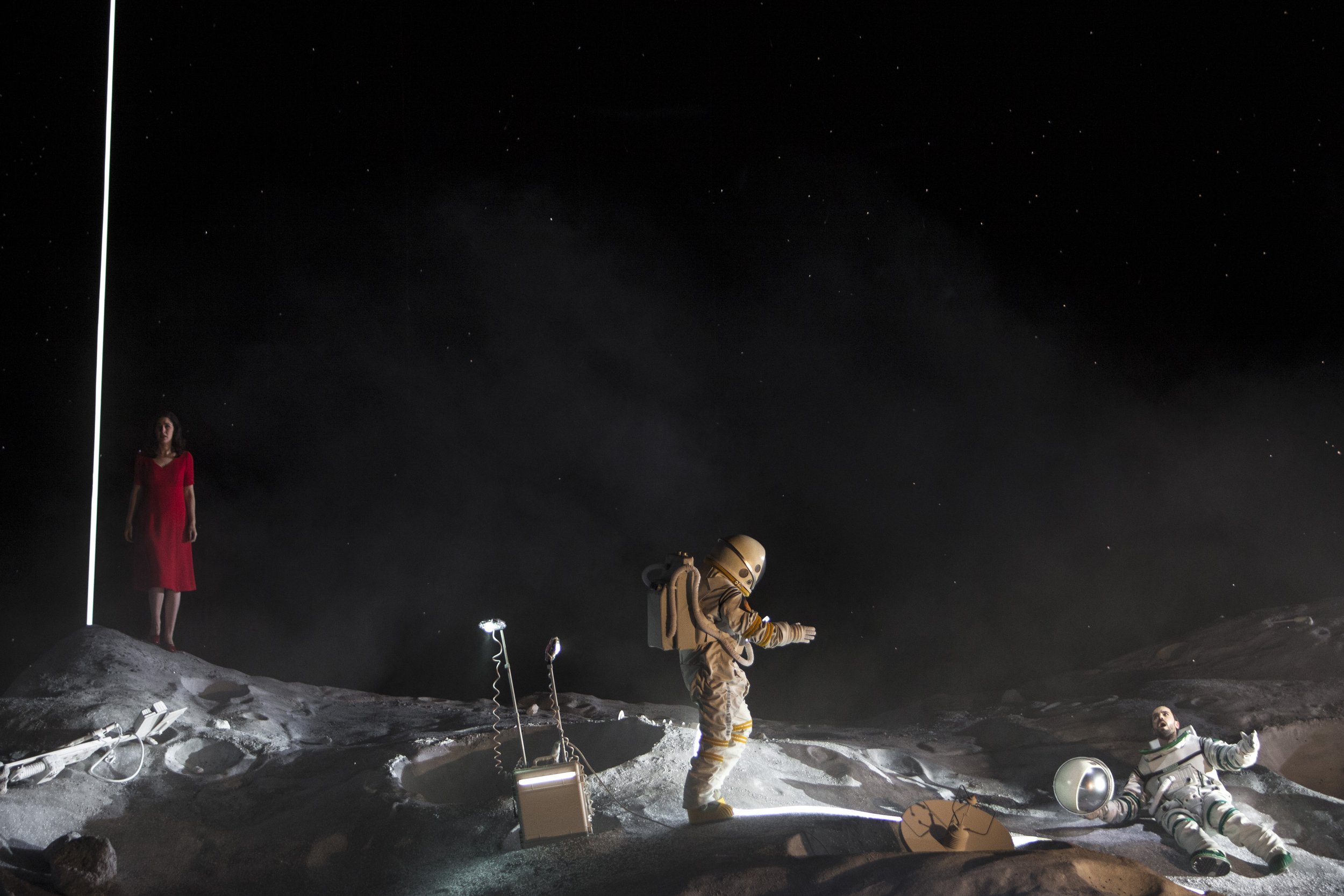All Guth! Claus Guth’s productions in Paris and Barcelona
Opera is the most complex art form, it works on many levels – on an intellectual level with the text, and on a completely irrational level through the music. As you add the imagery, it becomes a very rich form.
Claus Guth – profile, Opera magazine, September 2018
It’s rare, on a music tour, to have the opportunity to see two works by the same opera director, especially when those two productions come from two quite different parts of a career. On Limelight Arts Travel’s Paris to Barcelona tour next May, we see acclaimed German director Claus Guth’s 2011 production of Wagner’s Parsifal, designed by his customary collaborator Christian Schmidt, and his radical new production of Puccini’s La bohème from 2017, where he worked with Swiss designer, Etienne Pluss.
We see Parsifal near the end of the tour in Barcelona’s splendid Teatre del Liceu, where this production premiered, and La bohème at the beginning of the tour at the Opéra Bastille in Paris, where that production had its premiere.
It’s quite possible that you may not be familiar with the name Claus Guth, as until recently he has worked almost exclusively in Europe, especially in Germany, Austria and Switzerland. He first came to prominence in 2000, when he directed Gluck’s Iphigénie en Tauride for the Salzburg Festival. This was followed by a decade when he was more often associated with new work by living composers.
I first saw Guth’s production of Parsifal at the Teatro Real in Madrid in 2016 and found it engrossing. A distinctly uncontroversial production, it utilises the simple device of a slowly revolving stage to change the stage picture and the angle at which events are observed. This worked particularly well in Act I where Parsifal, who has stumbled into this place seemingly by accident (and who actually has very little to sing) is seen endlessly exploring this strange new environment, which, of course, he fails ultimately to comprehend. The period for the production is post-First World War, so Montsalvat’s Grail Hall has morphed into a military hospital, where – in a clever modern interpretation – the revealing of the Grail itself becomes an integral part of the treatment.
I’ve only seen Guth’s new production of La bohème at the Bastille on streaming, and as many of you will know, what works on video camera does not necessarily work on stage, and vice versa. My wife and I watched the streamed production at the very beginning of the pandemic, when our world seemed precarious, and we thought that La bohème, set on a doomed space station, might just be the occasion for some welcome light relief. The idea seemed so preposterous, so absurd.
As it turned out, we could not have been more mistaken. Taking place in the older Rodolfo’s memory, the director and designer’s unlikely depiction of regret, loss and impending death (concepts surely synonymous with Puccini’s original intentions) slowly, but inexorably, drew us in. The production created a sense of almost overwhelming sadness – a feeling which Puccini would also have entirely approved of – enhanced, as ever, by his powerfully emotive music.
Combine this with the completely unexpected outcome (which is nevertheless perfectly logical, in terms of the production) that Mimì survives in the non-illusory world, while Rodolfo dies slowly as his oxygen supply runs out (a mirror image of Mimì’s demise in a conventional production), and you have an extraordinarily original but completely involving reinterpretation of what could arguably be described as an overly familiar work. Simply stated, I have never been so moved by a performance of La bohème as I was on this occasion, and, perhaps even more surprisingly, its effect has lingered over the ensuing months.
Limelight Arts Travel’s Paris to Barcelona tour features many musical highlights, including the new Adès/MacGregor ballet The Dante Project at the Palais Garnier; glorious young cellist Sol Gabetta playing Shostakovich at the new Paris Philharmonie; Poulenc’s operatic masterpiece, Dialogues des Carmélites, in Bordeaux; and, as a finale, the superb Freiburg Baroque Orchestra with René Jacobs conducting Gluck’s Orfeo ed Euridice in Barcelona.
Despite all this stellar competition, the performance I’m most looking forward to is Claus Guth’s remarkable twenty-first century production of La bohème, which will be having its first revival at the Opéra Bastille in May 2023.
Production shots of Acts I & IV from the new Opéra national de Paris production of Puccini’s La bohème by Claus Guth and Etienne Pluss, starring Nicole Car as Mimí. Photo (with permission, Opéra national de Paris) by Bernd Uhlig.
Robert GAY
Robert Gay is one of Australia’s most highly-regarded music tour leaders and educators. He has given popular courses in music history at the Centre for Continuing Education, University of Sydney, for more than thirty years and has designed and led over 100 cultural tours.
READ MORE
RELATED TOUR
Paris to Barcelona
Dates: 28 May - 10 June 2023
Tour Leader: Robert Gay
Price: $11,950pp twinshare
Status: Places available
Enjoy fine performances in modern and historic venues, from Paris’s Palais Garnier and new Philharmonie, to Bordeaux’s Grand-Théâtre and the Gran Teatre del Liceu in Barcelona.




